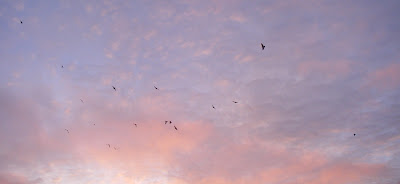I’ve lived in the North End, in William Whyte, for nearly
seven years now. The North End has
become my community. I’m proud of my
community and want to see it thrive. I
don’t like it when people who don’t live here say bad things about the North
End. So I do my best to find positive
news stories to share, drawing attention to the good. I think it’s important.
However, I can’t deny that bad stuff happens in my
community. The crime statistics are all
over the news. But statistics never tell
the whole story. The bad stuff affects
people—real, live people—all different kinds of people. So, what do people do when bad stuff happens
to them?
We just experienced vehicle damage and theft in broad
daylight, and not for the first time. The
financial toll is plenty to deal with, but the emotional cost is greater. It feels like our community is betraying
us. Doubts, fears, anger, and grief
tumble around and life feels upside-down for a while. Eventually, after repairs are made and life
settles down, we begin to trust again.
What do people do with worse injustices—attacks on their
home or their person? I think of my
pastor, who, in commemorating the loss of one of his flock, visited the local
hotel where she died, and for no apparent reason, was jumped by five guys and
lost four teeth. Beyond the physical
pain and loss, what happens to the heart?
How does one proceed? Keep
caring? Trusting? Giving?
I believe a couple of things are important. First, we need to feel the feelings that come
up. For us, there were tears. And questions. And anger.
Our family discussed inventing a crazy kind of security system that
would essentially punish offenders on the spot.
I’ll admit, we were quite gleeful over the idea. It returned a sense of power and control after
feeling helpless. It made us laugh. All part of healing.
Second, we need to have people to share with and support
us. I quickly emailed family and friends
and asked for their prayers. Just having
people know and empathize helped.
Finally, we need to forgive.
Forgiveness was not my first response.
If only we could make them pay!
And then I remembered, “I need to forgive.” Forgiveness doesn’t mean we pretend something
is okay when it’s not. Forgiveness
counts the cost, but chooses to let go of the grudge, knowing it will only
continue to bring more damage. Nelson
Mandela is quoted as saying, “Resentment is like drinking poison and waiting
for it to kill your enemy”.
Forgiveness sets us free.
Forgiveness sets us free.
Bad stuff happens in the North End. In the whole world, actually. What we do with the bad stuff will either
bring good or more bad. It’s up to us.









